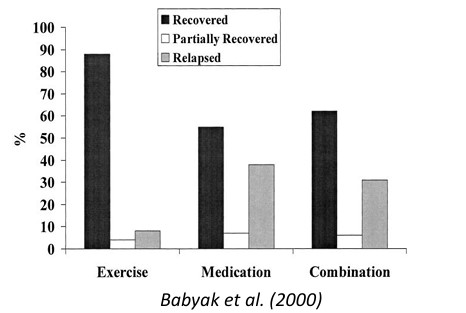Exercise for Happiness: Importance of Exercise for Mental Health
Maria stared at her reflection in the bathroom mirror, feeling disconnected from her own body. The past year of remote work had left her feeling sluggish, anxious, and struggling with how to be happy again. Her energy levels had plummeted, and finding joy in life seemed impossible. Then her sister mentioned something that would change everything: exercise for happiness. Within three weeks of starting a simple daily movement routine, Maria found the profound exercise mental health benefits that had been missing from her life. Her transformation wasn’t just physical – it was emotional, mental, and spiritual. Today, she radiates the kind of contentment that comes from understanding the true importance of exercise for mental health.
Like Maria, millions of people are realizing that movement serves as nature’s most powerful antidepressant. The benefits of exercise for mental health extend far beyond burning calories or building muscle. When we move our bodies intentionally and consistently, we unlock a cascade of positive changes that transform our entire relationship with happiness and well-being.

Exercise Mental Health Benefits: The Foundation of Optimal Health
Dr. Rangan Chatterjee, a leading voice in functional medicine, identifies four essential pillars that support optimal health and vitality: nutrition, relaxation, movement, and sleep. These interconnected elements work together to create a foundation for both physical wellness and emotional resilience.
Movement, one of these crucial pillars, acts as a catalyst that enhances all other aspects of health. When we engage in regular physical activity, we sleep more deeply, crave more nutritious foods, and develop a greater capacity for stress management and relaxation. This synergistic relationship demonstrates why exercise for happiness creates such profound and lasting changes in our overall quality of life.
The beauty of this framework lies in its holistic approach. Rather than viewing exercise as an isolated activity, we begin to understand how movement connects to every aspect of our well-being. This perspective helps us appreciate that the importance of exercise for mental health cannot be overstated. It literally supports the foundation upon which all other health improvements are built.
Read more about the link between health and happiness and Dr. Chatterjee’s four pillars of health.

Exercise: Nature’s Happiness Prescription
The relationship between physical activity and emotional well-being runs deeper than most people realize. When we move our bodies, we trigger a complex cascade of biochemical changes that directly impact our mood, energy levels, and mental clarity. Exercise mental health benefits begin at the cellular level and extend throughout our entire nervous system.
During physical activity, our brains release endorphins – nature’s own feel-good chemicals that act as natural painkillers and mood elevators. These powerful compounds create feelings of euphoria and well-being that can last for hours after we finish exercising. But endorphins represent just one piece of the happiness puzzle.
Regular movement also increases the production of serotonin, dopamine, and norepinephrine – neurotransmitters that regulate mood, motivation, and focus. Simultaneously, exercise reduces levels of cortisol and adrenaline, the stress hormones that contribute to anxiety, depression, and emotional overwhelm. This dual action creates an optimal neurochemical environment for happiness and mental clarity.
Research consistently demonstrates that the benefits of exercise for mental health rival or exceed many traditional interventions. A groundbreaking study by Babyak and colleagues examined whether exercise could increase happiness in people with major depression. They divided participants into three groups: exercise-only, medication-only, and combined treatment.
The results were remarkable. The exercise-only group achieved nearly 90% recovery rates, significantly outperforming both the medication-only group (50% recovery) and the combined treatment group (60% recovery). Even more compelling, participants who relied on exercise for happiness showed 30% lower relapse rates compared to those taking antidepressants.

The Hidden Costs of Sedentary Living
The World Health Organization reveals concerning statistics about modern activity levels: 50% of women and 40% of men in the United States and Europe don’t engage in sufficient physical activity. This sedentary epidemic carries devastating consequences for both physical and mental health that extend far beyond what most people realize.
Physical inactivity contributes to 5% of all deaths worldwide, according to WHO research. Beyond these mortality statistics, sedentary behavior increases the risk of cardiovascular disease, diabetes, obesity, and various cancers. However, the mental health implications prove equally alarming yet often remain overlooked in discussions about exercise for happiness.
When we don’t move regularly, our bodies accumulate stress hormones without natural outlets for release. This hormonal imbalance manifests as chronic anxiety, persistent low mood, decreased energy levels, and reduced cognitive function. The absence of regular movement disrupts sleep patterns, weakens immune function, and creates a vicious cycle of fatigue that makes finding joy in life increasingly challenging.
The importance of exercise for mental health becomes crystal clear when we examine the consequences of inactivity. Regular movement serves as a reset button for our physiological systems, restoring balance and promoting optimal brain function. Without this natural regulation mechanism, our mental health inevitably suffers.

How to Be Happy: This Week’s Movement Challenge
This week, I invite you to embrace a transformative challenge that can revolutionize how to be happy in your daily life: commit to moving your body for 30 minutes every day. This challenge isn’t about intense gym sessions or complicated workout routines – it’s about discovering the joy and benefits of exercise for mental health through consistent, enjoyable movement.
Your daily movement can take countless forms based on your preferences, schedule, and physical capabilities. You might choose to walk in nature, dance to your favorite music, practice yoga or tai chi, swim, cycle, or even engage in household activities with intention and energy. The key lies in choosing activities that feel pleasant rather than burdensome.
Remember that outdoor exercise provides additional benefits by connecting you with fresh air and natural environments, which can amplify exercise mental health benefits. However, indoor movement still delivers significant improvements in mood and well-being, so choose whatever feels most accessible and sustainable for your current situation. The goal is consistency, not perfection.

Your Complete Guide to Exercise for Happiness and Mental Health
Understanding the Four Types of Movement
Comprehensive fitness involves four distinct categories of exercise, each offering unique benefits for both physical and mental well-being. Understanding these categories helps you create a balanced approach to exercise for happiness that addresses all aspects of health and vitality.
Endurance or cardiovascular exercise forms the foundation of heart health while providing immediate mood enhancement. Activities like walking, running, hiking, swimming, and cycling improve cardiovascular function while releasing those crucial feel-good chemicals. Research from the University of Vermont shows that just 20 minutes of cardiovascular exercise can elevate mood for up to 12 hours.
Strength training builds muscle mass while simultaneously boosting self-esteem and confidence. Whether using bodyweight exercises, resistance bands, or weights, strength training provides a sense of accomplishment and physical empowerment that translates into improved mental resilience. Both cardio and strength training have been shown to reduce anxiety and depression while improving cognitive function.
Flexibility work includes stretching, yoga, and similar practices that promote both physical suppleness and mental relaxation. These activities often incorporate mindfulness elements, creating a meditative quality that reduces stress and promotes inner calm. Yoga and tai chi are particularly known for their ability to relax both mind and body.
Balance training helps prevent falls while enhancing body awareness and coordination. Practices like yoga, tai chi, and qigong combine balance work with meditative movement, offering particularly powerful benefits for stress reduction and emotional regulation. These gentle forms of exercise demonstrate how finding joy in life can emerge through mindful movement practices.
Optimal Frequency and Duration
The importance of exercise for mental health doesn’t require hours of daily commitment or extreme intensity levels. Research supports several effective approaches that make regular movement accessible to people with various schedules and fitness levels.
Daily Movement Minimum: Aim for 30 minutes of moderate activity daily. This duration can be broken into smaller segments throughout the day. For example, three 10-minute walks provide similar benefits to one continuous 30-minute session. The key is consistency rather than intensity.
Cardiovascular Recommendations: Engage in 15-30 minutes of enjoyable cardiovascular activity daily or at least three times per week. Studies demonstrate that this frequency delivers antidepressant effects comparable to six months of medication, highlighting the remarkable benefits of exercise for mental health.
Strength Training Schedule: Include resistance exercises 2-3 times per week, focusing on major muscle groups. Even brief “movement snacks” (2-minute strength intervals performed three times daily) can significantly impact overall well-being and mood regulation.
Flexibility and Balance Integration: Incorporate stretching or yoga sessions 2-3 times weekly, or add 5-10 minutes of flexibility work to daily routines. These practices enhance the mental health benefits while improving physical function and reducing injury risk.
These are general guidelines designed to support optimal mental and physical health, but there is absolutely no need to follow them rigidly. Any type of daily movement, if done consistently, provides meaningful benefits. In fact, for many people who dislike exercise, the most important factor is not the type, duration, or frequency of movement, but that it happens at all. Whether it’s dancing in your kitchen, taking a short walk, or stretching between meetings, what matters most is finding something you enjoy and sticking with it. Consistency, not perfection, is what leads to lasting results.
Finding Joy in Life Through Exercise: Practical Implementation Strategies (Ideas and Suggestions)
Reduce Sitting Time: Break up prolonged sitting with 5-minute movement breaks every hour. Stand during phone calls, take walking meetings when possible, and choose stairs over elevators. These small changes accumulate significant health benefits throughout the day.
Increase Daily Steps: Aim for 10,000 steps daily through intentional choices like parking farther away, walking to nearby destinations, and taking evening strolls. Walking improves cardiovascular health, strengthens muscles and bones, relieves stress, aids digestion, and provides opportunities for social connection.
Kitchen Workouts: When time is limited, perform Dr. Chatterjee’s recommended “daily movement snacks”: 5-10 squats, push-ups, calf raises, triceps dips, and lunges. These simple exercises require no equipment yet provide substantial exercise/mental health benefits while building strength and endurance.
Household Activities as Exercise: Embrace cooking, gardening, cleaning, and lawn care as legitimate movement opportunities. These functional activities contribute meaningfully to overall activity levels while accomplishing necessary tasks. Consider replacing power tools with manual alternatives to increase physical engagement.
Nature Integration: Whenever possible, exercise outdoors in natural settings. Compared to indoor exercise, outdoor activity makes you feel more energetic, revitalized, and engaged while reducing feelings of anger, tension, and depression. Exercise in natural surroundings has greater effects on stress reduction and demonstrates enhanced benefits of exercise for mental health.
How to Be Happy by Finding Your Personal Movement Style
Positive psychology research emphasizes the crucial importance of choosing activities you genuinely enjoy rather than what you think you “should” do. People who exercise for external reasons, like societal pressure or body dissatisfaction, often abandon their routines once initial goals are met, missing out on long-term exercise for happiness benefits.
Instead, focus on how to be happy through movement by experimenting with various activities until you discover what brings genuine pleasure and satisfaction. Perhaps you love dancing but dislike running, or maybe you find peace in swimming but feel stressed by competitive sports. Honor these preferences to build lasting exercise habits that contribute to sustained mental health improvements.
Create a comprehensive list of physical activities that spark joy, curiosity, or interest. Include both structured exercises and playful movements. There’s no wrong way to move your body as long as you’re moving it consistently and finding joy in life through these activities.
Consider the social aspects of movement as well. Group activities, workout buddies, or family-friendly movement options provide accountability while adding relationship benefits to physical activity. The importance of exercise for mental health extends beyond individual benefits to include enhanced social connections and community building.

Maximizing Your Exercise Experience
Music and Movement: Adding music to workouts enhances enjoyment while further boosting positive hormones and neurotransmitters. Create playlists that energize and motivate you, or explore rhythmic activities like dance-based fitness classes that naturally combine music with movement for enhanced exercise mental health benefits.
Mindful Movement: Approach exercise with intention and awareness rather than viewing it as a chore or obligation. Notice how your body feels during and after activity, celebrating small improvements and acknowledging the effort you’re making for your well-being. This mindful approach amplifies the benefits of exercise for mental health.
Progressive Development: Start where you are and gradually increase intensity, duration, or frequency over time. Consistency matters more than perfection, and small daily actions compound into significant long-term improvements in both physical health and mental well-being.
Hydration and Recovery: Drink plenty of water throughout the day to support optimal exercise performance and recovery. Proper hydration also creates more opportunities for movement as you’ll need to take more steps to the bathroom, contributing to your daily activity goals while supporting overall health. For the best recovery, add nutritious food, relaxation, and plenty of sleep. Read more about how to become healthier and happier through food for happiness, and learn how to relax quickly.

Your Journey to Lasting Happiness Through Movement
The evidence is overwhelming: exercise represents one of the most powerful, accessible, and immediately effective tools for finding joy in life and maintaining optimal mental health. Unlike many interventions that require external resources, professional guidance, or significant financial investment, movement is available to nearly everyone, regardless of circumstances or location.
The benefits of exercise for mental health begin with your very first step, stretch, or dance move. You don’t need to achieve fitness perfection or meet arbitrary standards to experience profound mood improvements and enhanced well-being. Even gentle, consistent movement creates positive changes in brain chemistry, stress hormone levels, and emotional regulation.
As you embark on this week’s movement challenge, approach it with curiosity, self-compassion, and realistic expectations. Some days will feel easier and more energizing than others, and that’s perfectly normal and expected. The goal isn’t to become an elite athlete overnight but to rediscover the natural joy and vitality that come from regularly moving your body with intention and appreciation.
Your future self will thank you for every minute you invest in movement today. Each workout, walk, dance session, or stretch represents an investment in your happiness, resilience, and overall quality of life. The importance of exercise for mental health extends far beyond temporary mood boosts. It builds the foundation for sustained well-being, emotional strength, and lasting life satisfaction.
How to Be Happy With 4HappyU
At 4HappyU, we understand that creating sustainable lifestyle changes often benefits from professional support and personalized guidance. Our coaching services help individuals develop lasting habits and overcome the mental barriers that prevent consistent self-care practices. If you’re ready to accelerate your journey toward optimal well-being, we’re here to support your transformation.
Start moving today, and discover firsthand how exercise for happiness can transform not just your physical health, but your entire relationship with joy, energy, and life satisfaction. Your mind, body, and spirit are all eagerly waiting to experience the incredible benefits that flow from this simple yet profoundly powerful practice of regular movement.
Remember: movement is medicine, joy is your birthright, and happiness is always within reach when you give your body the gift of regular, intentional physical activity.

Resources
The information in this article is grounded in scientific research. If you’re interested in specific studies, feel free to reach out to us.
For daily doses of joy, positivity, inspiration, and motivation, be sure to follow us on Instagram.
Za naše bralce v Sloveniji
Če vas zanima več o psihoterapiji in iskanju trajne sreče, preberite naslednje članke: Psihoterapija Obala, 5 ključev do trajne sreče in notranjega miru, Najboljši psihoterapevti v Sloveniji: Kako se hitro spopasti s stresom, Psiholog v Kopru: Kako odpraviti težave s psihoterapijo in RTT terapijo, in Psihoterapija Online: Prednosti in učinkovitost terapije na daljavo.


